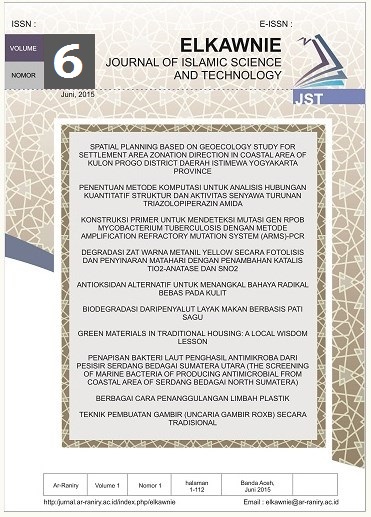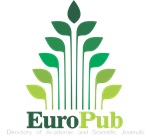Integrated Email Management System Based Google Application Programming Interface Using OAuth 2.0 Authorization Protocol
DOI:
https://doi.org/10.22373/ekw.v6i1.5545Keywords:
Google Apps API, Integration, Email Management, OAuth 2.0Abstract
Abstract : Google Apps is a service provided by Google that allows users to use Google products with their own domain names. Among the products offered by Google Apps are email (Gmail), Docs (Google Drive), and Classroom services. In addition, Google Apps also provides Application Programming Interface (API) services that can be used by developers to take advantage of various features provided by Google. Universitas Ubudiyah Indonesia (UUI) is one of the universities that use Google Apps service for managing student emails. At present, UUI student email management through Google Apps is still not integrated with academic information system data. As a result, UUI must allocate special resources for managing student emails manually. Based on these problems, this study proposes an integration system for UUI student email management using the Google Apps API. This system is designed using PHP programming. The Google Apps API authentication method uses OAuth 2.0. The results of this study indicate that student email management on Google Apps can be done through campus academic information systems. With this system, students can activate email independently without having to be registered manually to the Google Apps page by the campus email managers.
Abstrak : Google Apps adalah sebuah layanan yang disediakan oleh Google yang memungkinkan pengguna dapat menggunakan produk google dengan nama domain sendiri. Di antaranya produk yang disediakan Google Apps yaitu layanan email (Gmail), dokumen (Google Drive), dan Classroom. Selain itu, Google Apps juga menyediakan layanan Application Programming Interface (API) yang dapat dimanfaatkan oleh pengembang untuk memanfaatkan berbagai layanan yang disediakan oleh Google. Universitas Ubudiyah Indonesia (UUI) merupakan salah satu universitas yang menggunakan layanan Google Apps untuk pengelolaan email mahasiswa. Saat ini pengelolaan email mahasiswa UUI melalui Google Apps masih belum terintegrasi dengan data sistem informasi akademik. Akibatnya UUI harus mengalokasikan sumber daya khusus untuk mengelola email mahasiswa secara manual. Berdasarkan permasalahan tersebut penelitian ini mengusulkan sistem integrasi pengelolaan email mahasiswa UUI menggunakan API Google Apps. Sistem ini dirancang menggunakan pemograman PHP. Metode autentikasi API Google Apps menggunakan OAuth 2.0. Hasil penelitian ini menunjukkan pengelolaan email mahasiswa pada Google Apps dapat dilakukan melalui sistem informasi akademik kampus. Dengan adanya sistem ini mahasiswa dapat melakukan aktivasi email secara mandiri tanpa harus didaftarkan secara manual ke halaman Google Apps oleh pengelola email kampus.
References
Febrian, T. (2017). Memahami OAuth 2.0 (API Security). Retrieved December 13, 2019, from UNIKOM Codelabs website: https://medium.com/codelabs-unikom/memahami-oauth-2-0-api-security-9376bc3a307b
Ferry, E., Raw, J. O., & Curran, K. (2015). Security evaluation of the OAuth 2.0 framework. Information and Computer Security. https://doi.org/10.1108/ICS-12-2013-0089
Hairah, U., & Budiman, E. (2017). Pemanfaatan Google Maps Api Dalam Pengembangan Media Informasi Pasar Malam Di Kota Samarinda. ILKOM Jurnal Ilmiah. https://doi.org/10.33096/ilkom.v9i1.104.9-16
Hradil, J., & Sklenák, V. (2017). Practical Implementation of 10 Rules for Writing REST APIs. Journal of Systems Integration. https://doi.org/10.20470/jsi.v8i1.290
Jung, S. W., & Jung, S. (2017). Personal OAuth authorization server and push OAuth for Internet of Things. International Journal of Distributed Sensor Networks. https://doi.org/10.1177/1550147717712627
Lensakom. (2016). Mengenal Konsep API pada Pemrograman. Retrieved November 16, 2019, from Lensakom website: https://www.lensakom.com/mengenal-konsep-api-pada-pemrograman/
Munadi, R., Musliyana, Z., Arif, T., Azmi, A., & Syahrial, S. (2016). Kombinasi Waktu Sinkronisasi dan Nilai Salt untuk Peningkatan Keamanan pada Single Sign-On. Jurnal Nasional Teknik Elektro Dan Teknologi Informasi (JNTETI), 5. https://doi.org/10.22146/jnteti.v5i3.257
Musliyana, Z., Dwipayana, M., Helinda, A., & Maizi, Z. (2018). Improvement of Data Exchange Security on HTTP using Client-side Encryption. Journal of Physics: Conference Series, 1019(1). https://doi.org/10.1088/1742-6596/1019/1/012073
Musliyana, Zuhar, Arif, T. Y., & Munadi, R. (2016). Peningkatan Sistem Keamanan Autentikasi Single Sign on (SSO) Menggunakan Algoritma AES Dan One-Time Password Studi Kasus: SSO Universitas Ubudiyah Indonesia. Jurnal Rekayasa Elektrika, 12(1), 21–29.
Perkasa, M. I., & Setiawan, E. B. (2018). Pembangunan Web Service Data Masyarakat Menggunakan REST API dengan Access Token. Jurnal ULTIMA Computing. https://doi.org/10.31937/sk.v10i1.838
Tongkaw, S., & Tongkaw, A. (2017). A comparison of database performance of MariaDB and MySQL with OLTP workload. ICOS 2016 - 2016 IEEE Conference on Open Systems. https://doi.org/10.1109/ICOS.2016.7881999
Treude, C., & Aniche, M. (2018). Where does Google find API documentation? Proceedings - International Conference on Software Engineering. https://doi.org/10.1145/3194793.3194796
W3Techs. (2019). Usage of server-side programming languages for websites. Retrieved November 16, 2019, from W3Techs website: https://w3techs.com/technologies/overview/programming_language
Xie, M., Huang, W., Yang, L., & Yang, Y. (2016). VOAuth: A solution to protect OAuth against phishing. Computers in Industry, 82, 151–159. https://doi.org/10.1016/j.compind.2016.06.001
Zulfan, D. T., & Chaidir, M. (2016). Google Loon Sebagai Solusi Terkini Koneksivitas Internet di Daerah Pedalaman dan Terpencil Google Loon Sebagai Solusi Terkini Koneksivitas Internet Di Daerah Pedalaman. In Elkawnie: Journal of Islamic Science and Technology.
Downloads
Additional Files
- Gambar 1 Konsep API
- Gambar 2 DFD level 0
- Gambar 3 DFD level 1
- Gambar 4 ERD pengelolaan email terintegrasi menggunakan API Google Apps
- Gambar 5 Rancangan Tabel
- Gambar 6 Menampilkan data email via API Google Apps
- Gambar 7 Membuat email baru via API Google Apps
- Gambar 8 Interface data email mahasiswa
- Gambar 9 Interface membuat email mahasiswa
- Gambar 10 Email mahasiswa
- Gambar 11 Fungsi edit, hapus dan pencarian email mahasiswa
- Gambar 12 Inteface aktivasi email mahasiswa
- Gambar 13 Inteface merubah password email mahasiswa
Published
Issue
Section
License
Proposed Policy for Journals That Offer Open Access Authors who publish with the Elkawnie journal agree to the following terms:
a. Authors retain copyright and grant the journal right of first publication with the work simultaneously licensed under a Creative Commons Attribution License that allows others to share the work with an acknowledgement of the work's authorship and initial publication in this journal.
b. Authors are able to enter into separate, additional contractual arrangements for the non-exclusive distribution of the journal's published version of the work (e.g., post it to an institutional repository or publish it in a book), with an acknowledgement of its initial publication in this journal.
c. Authors are permitted and encouraged to post their work online (e.g., in institutional repositories or on their website) prior to and during the submission process, as it can lead to productive exchanges, as well as earlier and greater citation of published work (see The Effect of Open Access).

























